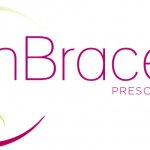In an excellent and thoughtful review article, Kristina Deligiannidis and Marlene Freeman (from the MGH Center for Women’s Mental Health) summarize data on the efficacy of complementary and alternative medicine therapies for the treatment of perinatal depression. This is one of the most thorough reviews on CAM and provides thoughtful, evidence-based recommendations regarding the use of these treatments for women with perinatal depression. It is definitely worth tracking down a copy of this review, but if you can’t find it, here is a summary.
Omega-3 Fatty Acids:
Several studies have shown an inverse relationship between antenatal fish intake and perinatal depressive symptoms, several randomized placebo-controlled trials have not demonstrated a benefit with omega-3 fatty acids for the acute treatment or prevention of perinatal depression. A small ( n = 36) randomized, double-blind placebo-controlled trial found a significant benefit of omega-3 fatty acids compared with placebo in the treatment of antenatal depression.
On the basis of positive findings from RCTs and meta-analyses in non-perinatal depression, we recommend perinatal patients with depression should consume 1 g EPA plus DHA daily. At this time, considering that the studies to date have been small and with inconsistent findings on efficacy for MDD, it is reasonable to augment other treatments with omega-3 fatty acids.
Folate
On the basis of the potential decrease in birth defects and RCT data that modestly support an antidepressant effect of augmentation with folate (i.e. folic acid 0.4–5 mg/day or folinic acid 15–30 mg/day), we recommend folate as an important adjunctive strategy for perinatal unipolar depression, as it carries little risk and may be particularly effective in women with low serum folate levels.
S-adenosyl l-methionine:
No studies have evaluated the efficacy of SAMe for antenatal depression. One placebo-controlled study supported the efficacy of SAMe for postpartum depressive symptoms,
St. John’s Wort:
Few studies have investigated the safety of St John’s Wort during the perinatal period. No studies have evaluated its efficacy for the treatment of perinatal depression.
Bright Light Therapy:
Three studies assessing bright light therapy for the treatment of antenatal depression support its efficacy. A small RCT of 15 women with postpartum depression treated with bright light therapy did not demonstrate its efficacy.
We recommend initial dosing of 30 minutes beginning within 10 minutes of awakening. On the basis of the high prevalence of mood episodes during pregnancy and the postpartum in the course of bipolar disorder, even if not previously diagnosed, patients should be monitored carefully for emergent symptoms of hypomania or mania, sleep disturbance, and agitation when bright light therapy is initiated.
Exercise:
Two RCTs demonstrated that a 12-week exercise intervention led to a significant reduction of depressive symptoms.
On the basis of limited evidence for exercise in the treatment of perinatal depression, we recommend, for general health, 30 minutes a day of exercise most days of the week in the absence of either medical or obstetric complications and after consultation with an obstetrician.
Massage:
Four studies have demonstrated that massage therapy is efficacious for reducing antenatal depressive symptoms. One study has demonstrated efficacy for postnatal depression.
Given safety data and a growing research base supporting massage therapy as an effective treatment for non-perinatal and perinatal depressive symptoms, massage therapy, consisting of weekly sessions of 20 minutes, may be a reasonable consideration for perinatal women with mild depression symptomatology.
Acupuncture:
Two RCTs demonstrated that 8 weeks of treatment with active manual acupuncture was more effective than control acupuncture for pregnant women with MDD. A smaller study in women with postpartum depression demonstrated no difference between electroacupuncture and sham acupuncture.
On the basis of current evidence, acupuncture may be an attractive option to consider as part of a treatment plan. At this time, it is premature to recommend acupuncture as a first-line treatment for perinatal MDD.
While many women with depression would prefer to use CAMs over conventional antidepressant therapies, it is essential that we do not recommend treatments with limited data supporting their efficacy and/or reproductive safety. Based on their review of the current literature, the authors note that, in women with perinatal depression, there is evidence to support the augmentation of standard treatments with omega-3 fatty acids, exercise or folate. Acupuncture and massage may provide benefit, but should not replace more conventional treatments. Bright light therapy may be reasonable therapeutic options for some individuals who prefer non-pharmacologic interventions.
Ruta Nonacs, MD PhD
Deligiannidis KM, Freeman MP. Complementary and alternative medicine therapies for perinatal depression. Best Pract Res Clin Obstet Gynaecol. 2013 Aug 26. [Epub ahead of print]







Leave A Comment